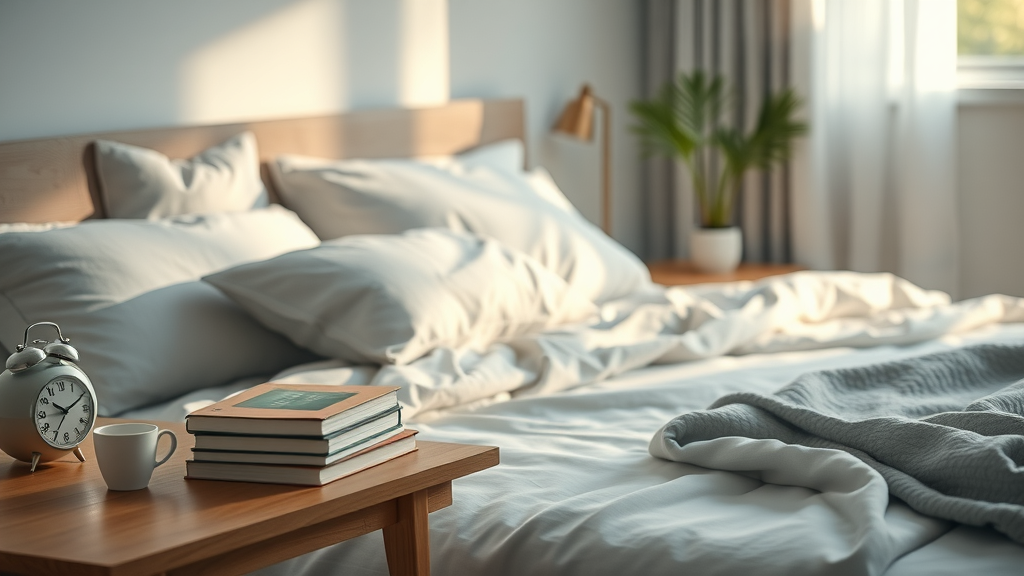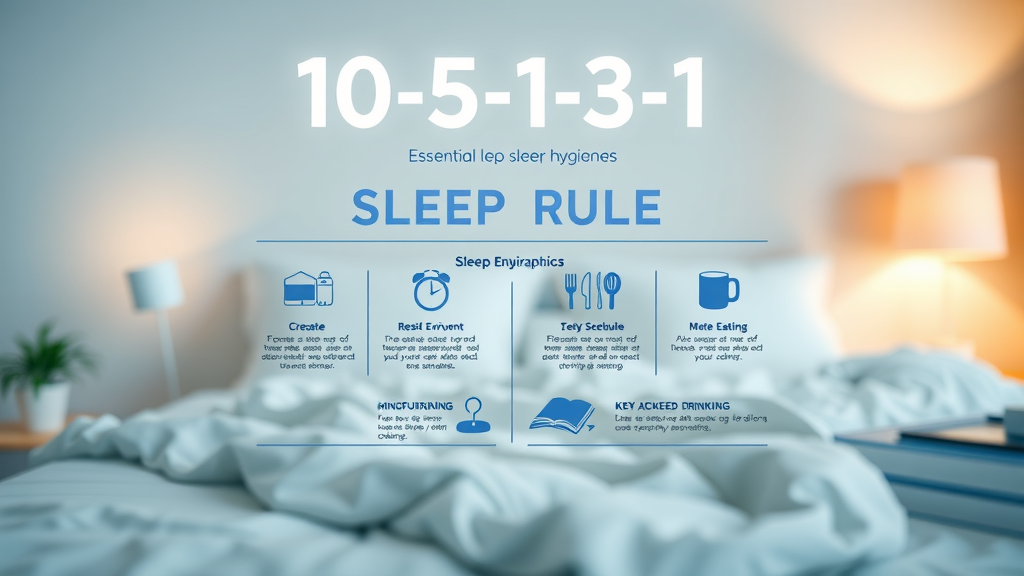In our bustling lives, sleep often takes a backseat, leading to fatigue, stress, and diminished productivity. But what if mastering sleep hygiene could be the key to unlocking your best self? Transform Your Life with These Essential Sleep Hygiene Tips delves into the art of creating a restful sanctuary, establishing bedtime rituals, and understanding the science behind quality sleep. By embracing these practices, you can enhance your mood, boost your energy, and improve your overall well-being. Ready to reclaim your nights and transform your days? Let’s dive in!
Understanding Sleep Hygiene
What is Sleep Hygiene?
Sleep hygiene refers to a series of practices and habits that are essential for maintaining good sleep quality. It encompasses various factors, including your sleep environment, daily routines, and lifestyle choices that can significantly impact your ability to fall asleep and stay asleep. By understanding and implementing effective sleep hygiene practices, you can create a conducive atmosphere for restful sleep.
The Importance of Sleep Hygiene
Good sleep hygiene is crucial for overall health and well-being. Poor sleep can lead to a myriad of health issues, including increased stress levels, impaired cognitive function, and a higher risk of chronic diseases. By prioritizing sleep hygiene, you can improve your sleep quality, enhance your mood, and boost your productivity during the day. In essence, good sleep hygiene is not just about getting enough sleep; it's about ensuring that the sleep you do get is restorative and beneficial.
Key Principles of Sleep Hygiene
Creating a Sleep-Conducive Environment
Your sleep environment plays a significant role in your ability to achieve quality sleep. To create a sleep-conducive environment, consider the following tips:
- Keep your bedroom dark, quiet, and cool.
- Invest in a comfortable mattress and pillows.
- Minimize noise and consider using a white noise machine if necessary.
- Limit exposure to light, especially blue light from electronic devices, before bedtime.
Establishing a Consistent Sleep Schedule
Maintaining a consistent sleep schedule is vital for regulating your body's internal clock. Aim to go to bed and wake up at the same time every day, even on weekends. This consistency helps reinforce your body's natural sleep-wake cycle, making it easier to fall asleep and wake up feeling refreshed.
Limiting Screen Time Before Bed
Exposure to screens before bedtime can interfere with your ability to fall asleep. The blue light emitted by phones, tablets, and computers can disrupt your circadian rhythm, making it harder to feel sleepy. To improve your sleep hygiene, try to limit screen time at least an hour before bed. Instead, engage in relaxing activities such as reading a book or practicing mindfulness.
Mindful Eating and Drinking
What you consume can significantly affect your sleep quality. Avoid large meals, caffeine, and alcohol close to bedtime, as they can disrupt your sleep cycle. Instead, opt for light snacks if you're hungry, and consider herbal teas that promote relaxation. Staying hydrated throughout the day is essential, but try to limit fluid intake in the evening to avoid nighttime trips to the bathroom.
Incorporating Relaxation Techniques
Incorporating relaxation techniques into your bedtime routine can help signal to your body that it's time to wind down. Consider practices such as deep breathing, meditation, or gentle yoga to help calm your mind and prepare for sleep. Establishing a relaxing bedtime ritual can make it easier to transition from the busyness of the day to a restful night.
The 10-5-3-1 Sleep Rule
Understanding the 10-5-3-1 Rule
The 10-5-3-1 rule is a simple guideline to help you optimize your sleep hygiene. It suggests that you should:
- Stop eating 10 hours before bedtime.
- Avoid caffeine 5 hours before bed.
- Limit alcohol 3 hours before sleep.
- Put away screens 1 hour before bedtime.
By following this rule, you can create a more conducive environment for falling asleep and staying asleep throughout the night.
How to Implement the 10-5-3-1 Rule
To effectively implement the 10-5-3-1 rule, start by planning your meals and beverages throughout the day. Set reminders to help you adhere to these guidelines, and gradually adjust your routine to incorporate these changes. Over time, you’ll likely notice improvements in your sleep quality and overall well-being.
Signs of Poor Sleep Hygiene
Identifying Poor Sleep Patterns
Recognizing the signs of poor sleep hygiene is the first step toward improvement. Common indicators include difficulty falling asleep, frequent awakenings during the night, and waking up feeling unrefreshed. If you find yourself experiencing these issues regularly, it may be time to evaluate your sleep hygiene practices.
Three Common Signs of Poor Sleep Hygiene
Here are three common signs that your sleep hygiene may need attention:
- Struggling to fall asleep or stay asleep, often tossing and turning.
- Feeling excessively tired or groggy during the day, impacting your productivity.
- Reliance on sleep aids or medications to fall asleep.
What You'll Learn
- The definition and importance of sleep hygiene
- Key principles to improve sleep quality
- How to apply the 10-5-3-1 sleep rule
- Signs indicating poor sleep hygiene
FAQs about Sleep Hygiene
What is a good sleep hygiene?
Good sleep hygiene includes practices that promote quality sleep, such as maintaining a consistent sleep schedule, creating a comfortable sleep environment, and avoiding stimulants before bedtime.
What are the 5 principles of sleep hygiene?
The five principles of sleep hygiene include:
- Establishing a regular sleep schedule
- Creating a restful environment
- Limiting screen time before bed
- Mindful eating and drinking
- Incorporating relaxation techniques
What is the 10-5-3-1 sleep rule?
The 10-5-3-1 sleep rule is a guideline that suggests stopping eating 10 hours before bed, avoiding caffeine 5 hours before sleep, limiting alcohol 3 hours before bedtime, and putting away screens 1 hour before sleep.
What are 3 signs of poor sleep hygiene?
Three signs of poor sleep hygiene include difficulty falling asleep, waking up frequently during the night, and feeling tired or unrefreshed during the day.
Key Takeaways
- Sleep hygiene is crucial for overall health.
- Creating a conducive sleep environment enhances sleep quality.
- The 10-5-3-1 rule can help regulate sleep patterns.
- Recognizing signs of poor sleep hygiene is the first step to improvement.
Conclusion
In conclusion, prioritizing sleep hygiene is essential for achieving quality sleep and improving your overall health. By implementing the key principles discussed in this article, you can create a restful environment, establish healthy sleep habits, and enhance your well-being. Remember, good sleep hygiene is not just about the quantity of sleep but also the quality. Start making these changes today, and you’ll be on your way to a more restful and rejuvenating sleep experience.
Call to Action
Ready to transform your sleep? Start implementing these essential sleep hygiene tips today and experience the benefits of a good night's rest. For more insights, check out our Sleep Hygiene Tips Video! Additionally, explore how 15,000 steps can transform your health and enhance your overall well-being.





 Add Row
Add Row  Add Element
Add Element 



Write A Comment